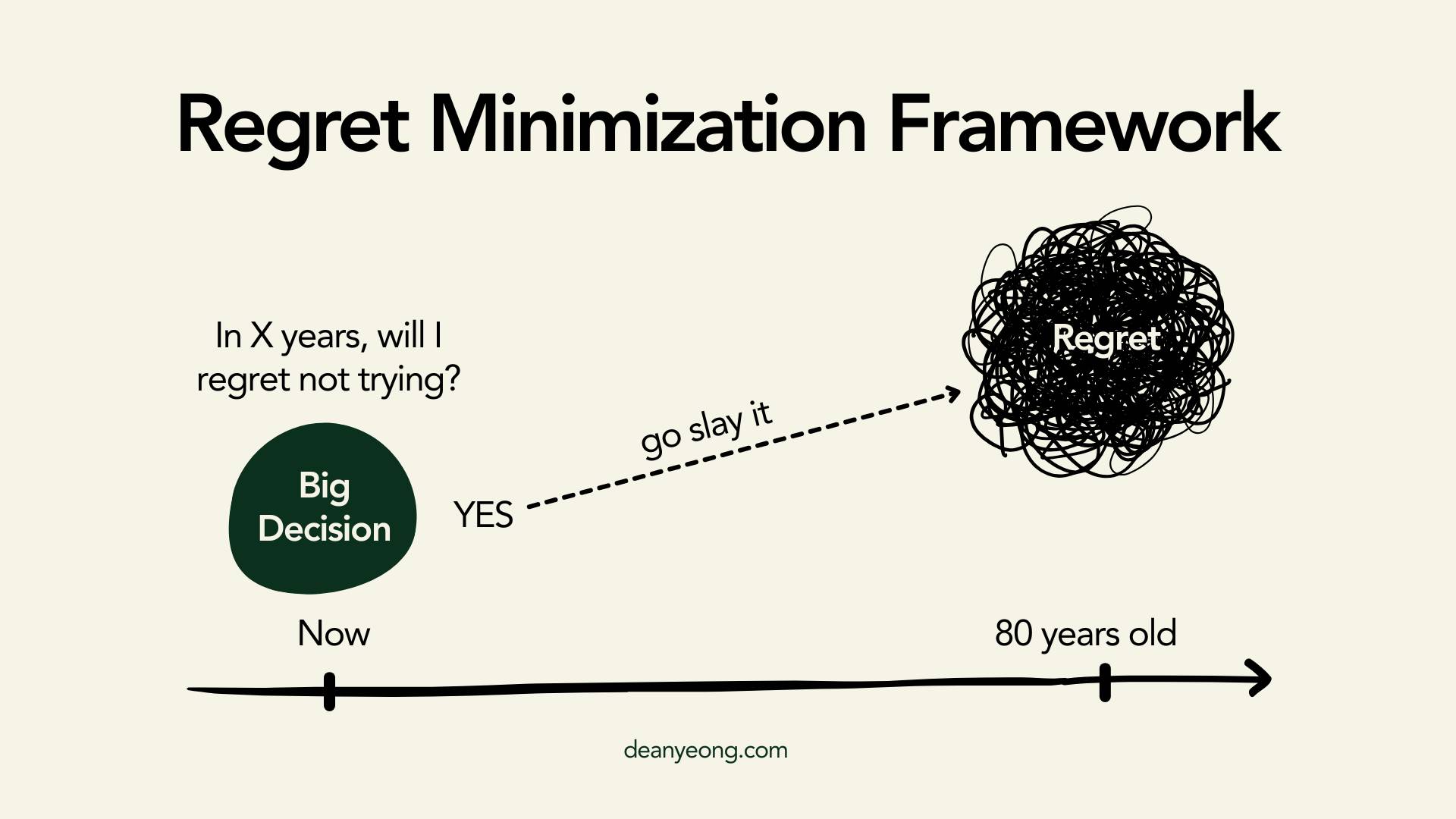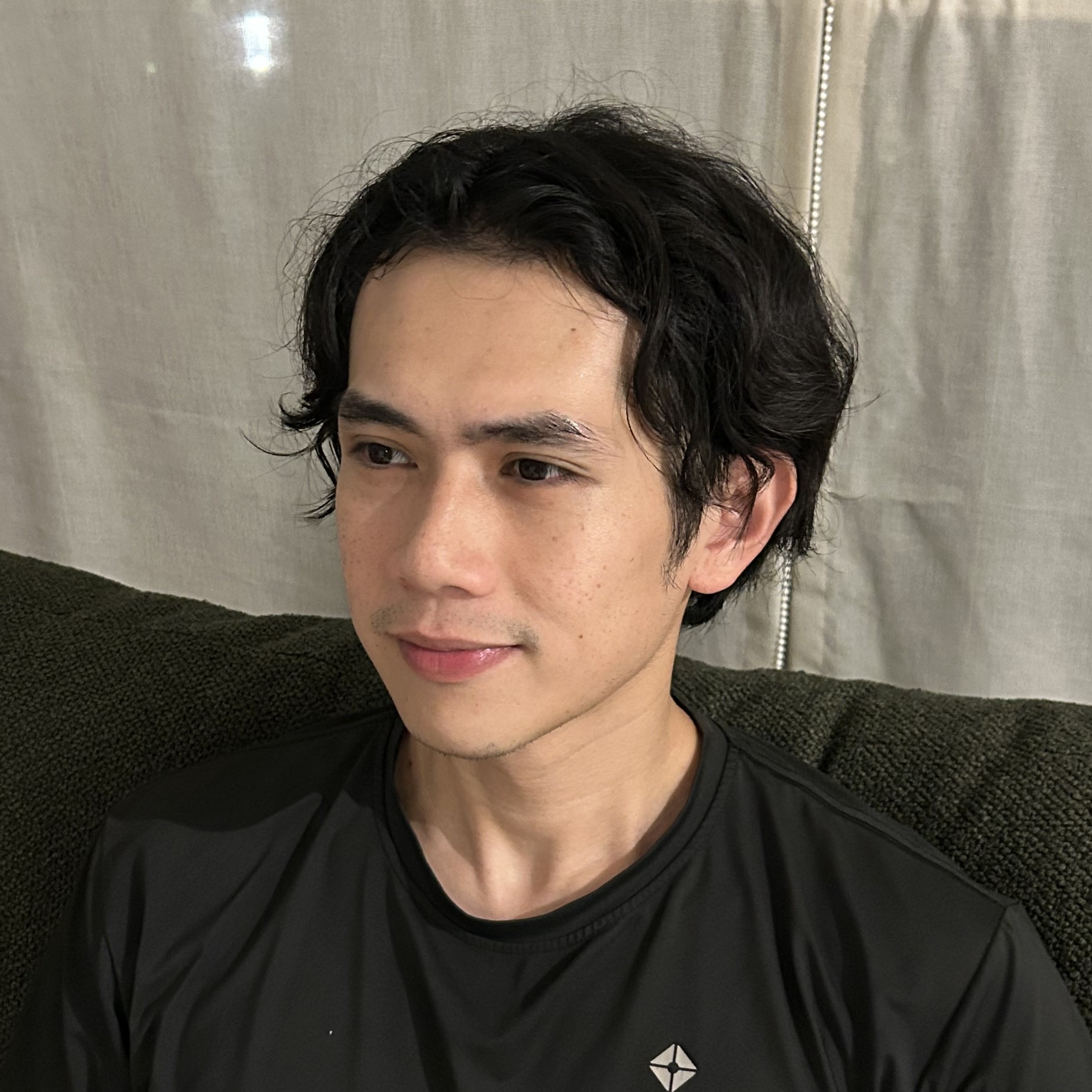Regret Minimization Framework
How to Choose Between Certainty and Possibility
Jeff Bezos was 30 years old, working as a senior vice president at D. E. Shaw, one of Wall Street’s most respected hedge funds.
He had a stable career, a generous salary, and a clear path ahead of him, the kind of life most people spend decades trying to build. Yet something in him felt unsettled, a small pull he couldn’t quite ignore.
That pull came from a statistic that seemed almost impossible: the internet was growing at 2,300% a year. Bezos kept rereading the number because nothing grows that fast.
He started sketching out ideas and building a list of 20 product categories that might benefit from an online model. He looked for something the internet could fundamentally transform, not just replicate.
Books stood out immediately. There were millions of titles in print, far more than any physical bookstore could ever carry. An online store, with unlimited shelf space, suddenly made sense. This wasn’t about disruption or dominance. It was simply a curiosity he couldn’t put down — the idea that the internet made something possible that hadn’t been possible before.
When he brought the idea to his boss, he received a thoughtful, almost fatherly reply: “It’s a great idea… for someone who doesn’t already have your job.”
The comment lingered with him. It captured the real conflict he was facing: whether he should stay on a path that was already working or step into a future that had no guarantees.
Certainty vs Possibility
Bezos took time to think. He weighed the risks, talked to people he trusted, looked at the data, and tried to understand what this decision meant for his life. He wasn’t running away from his job. He just didn’t want to ignore a possibility he believed would matter in the long run.
The choice was not between “terrible job vs exciting startup.” It was between certainty and possibility, which is a much harder tradeoff.
Most people underestimate how difficult it is to leave something that’s already working well, especially when the alternative could fail in a hundred different ways.
Eventually, Bezos tried a different approach. He projected himself forward, imagining the version of himself at age 80 looking back on this decision. It was a simple mental shift, but it pulled him out of the noise of the present.
“When I’m 80, will I regret not trying?”
Once he asked that, the clouds lifted. He knew he might fail. He knew the business could flop. But he also knew that the regret of not trying would stay with him far longer than any embarrassment or financial loss.
The Regret Minimization Framework
That question became the foundation of his Regret Minimization Framework, a personal way of seeing that helped him choose the life he wanted, not just the life he already had.

It is powerful because it stretches your timeline. Most of us make decisions based on short-term emotions: fear of failure, fear of judgment, fear of losing stability. By looking decades ahead, you bypass those impulses and see your choices with clearer eyes.
It also asks you to confront opportunity costs. Every decision includes the cost of the path you didn’t take, and imagining your future self forces you to acknowledge that invisible price. Psychologists call this anticipated regret, and it explains why we often fear the regret of inaction more than the regret of trying something that doesn’t work.
When you judge a decision through your future self, short-term fears soften, and long-term truth becomes harder to ignore.
What Would Your 80-Year-Old Self Want?
Bezos eventually quit his job, moved to Seattle, built desks out of doors, and launched a tiny online bookstore called Amazon.
The real lesson here has nothing to do with building a trillion-dollar company. It’s about choosing the path your future self will be proud of—even if nobody else understands it yet.
So here’s the question to sit with this week:
What decision are you avoiding that your 80-year-old self would want you to make today?
Pick that decision, big or small, and run it through the same question Bezos used.
Let it challenge you. Let it guide you. And let it remind you that regret often grows in the space where courage was needed most.


